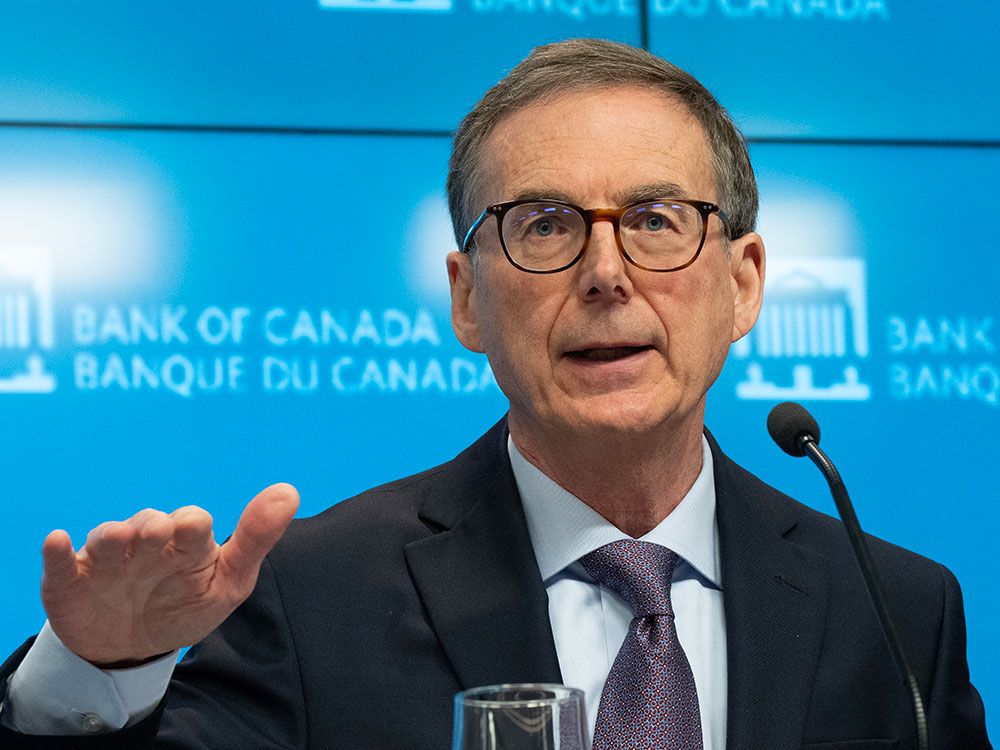Sobeys’ parent company teams up with manufacturers to draft code of conduct for embattled grocery sector

The pitch for more restraints on big grocers — coming from one of the biggest grocers, no less — is likely to have major impacts on how the vast majority of Canadians get their food

Article content
One of Canada’s most powerful supermarket chains is giving legislators a blueprint on how to end bully tactics in the food chain, conceding that dysfunction between the dominant grocers and their suppliers is hurting Canadian farmers, food processors and consumers.
Empire Co. Ltd., Sobeys’ parent company, on Thursday said it will submit a proposal for an industry code to a government working group that is currently investigating the cause of an ongoing battle between supermarket chains and their suppliers.
The pitch for more restraints on big grocers — coming from one of the biggest grocers, no less — is likely to have major impacts on how the vast majority of Canadians get their food.
Empire co-wrote the code of conduct with Food, Health and Consumer Products of Canada (FHCP) — an improbable alliance, considering FHCP has for years been the loudest and fiercest critic of how the big grocers treat their suppliers.
Advertisement
Story continues below
This advertisement has not loaded yet, but your article continues below.
Article content

Food producers have been in open revolt against grocers since last year, when both Walmart Inc. and Loblaw Cos. Ltd. started charging suppliers extra fees to help cover the cost of e-commerce and infrastructure upgrades during the pandemic.
So-called shelving fees and heavy fines for minor infractions such as short shipments have long been a point of contention for suppliers, who have little choice but to swallow the extra costs since they can’t risk being shut out by one of the few major grocery chains in a heavily consolidated market.
But the Loblaw and Walmart fees, coming during the chaos of a pandemic, pushed the issue to a tipping point.
FHCP chief executive Michael Graydon last summer warned of growing frustration with supermarket chains “using the manufacturers as a bank,” and called for the government to step in and implement a code of conduct, similar to one used to rein in bully tactics in the United Kingdom’s grocery business.
In his months-long fight for a code of conduct, Graydon has found an ally in Empire chief executive Michael Medline, who shocked many in the industry by slamming the Loblaw and Walmart fees as “repugnant.”
In a pivotal speech to the Empire Club of Canada last fall, Medline threw his support behind the push for a code of conduct. But he stressed that industry should lead the change.
“I don’t think a government unilaterally coming in and putting in legislation will probably help, because it’s a very complex industry and I don’t want unintended consequences,” he said.
Advertisement
Story continues below
This advertisement has not loaded yet, but your article continues below.
Article content
Thursday’s proposal to the government working group, in development since last fall, appears to be a step toward an industry-led code of conduct.
The draft code lays out rules of engagement for supply deals, in an attempt “to stabilize relations” between retailers and suppliers, Empire said in a statement on Thursday. The proposed code would also see the establishment of a government adjudication system to handle complaints about unfair practices.
“Empire agrees with the FHCP that the negative ripple effects from poor retailer-supplier relations make their way to consumers and can impact pricing, product choice and job opportunities in Canada,” Empire said. “Ultimately, these practices create very challenging conditions for suppliers and manufacturers to thrive in Canada.”
Late last year, the federal, provincial and territorial ministers of agriculture, who meet semi-annually to discuss national food chain issues, tasked a working group with investigating fees in the grocery sector and coming up with recommendations in time for the ministers’ next meeting in July.
The group decided the sector needed government intervention well before Thursday’s surprise announcement from Empire and FHCP.
Quebec Agriculture Minister André Lamontagne, who co-chairs the working group, told the Financial Post earlier this month he had already determined that fixing the issues in the grocery business will require a coordinated government response.
“Certainly, we have highlighted an issue that needs attention, needs some resolution — this I have learned, I can tell you that,” he said.







